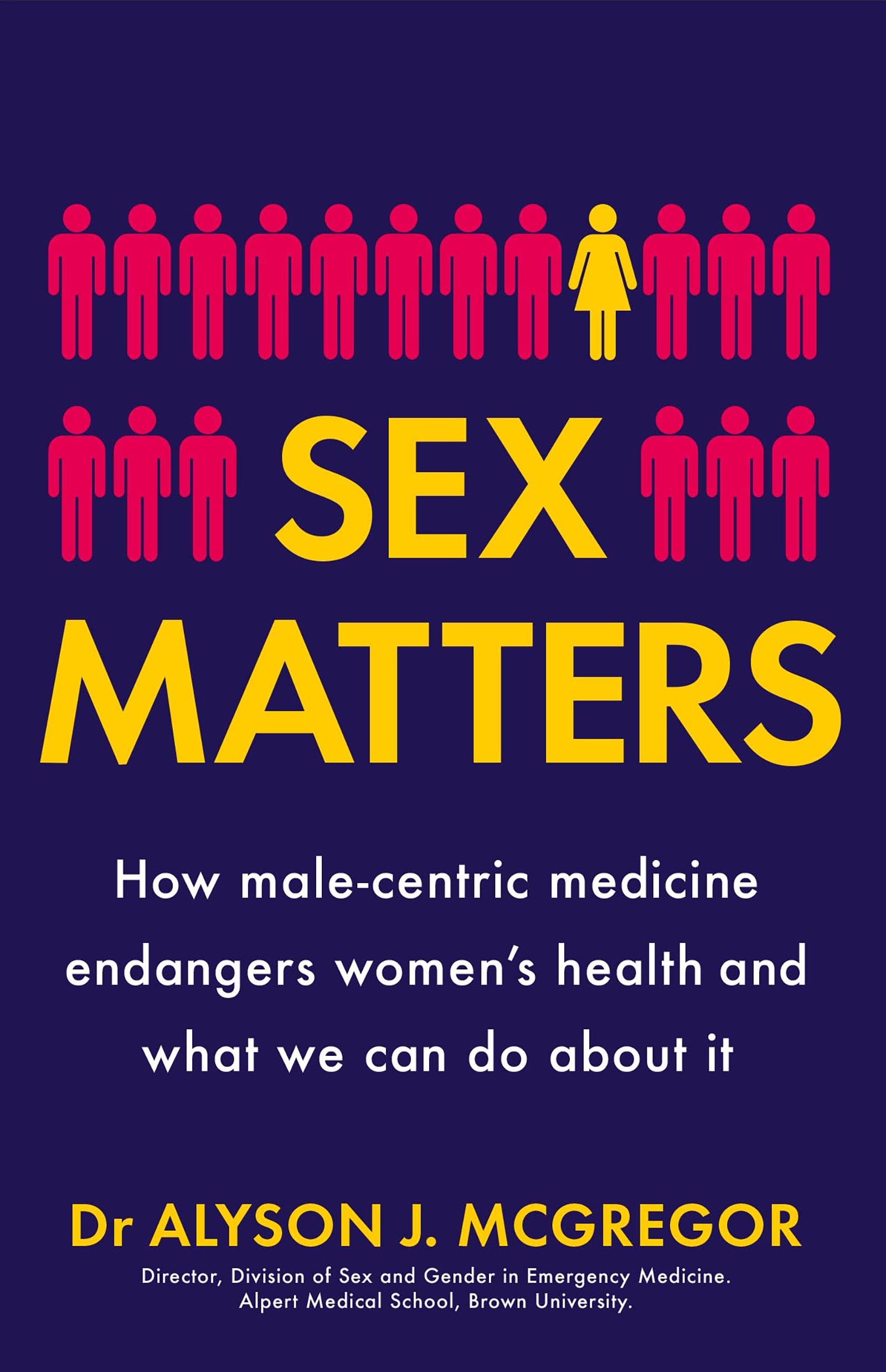Women’s bodies are different from men’s from cellular level upwards, yet the same treatments are usually prescribed for both sexes – to the detriment of women. Dr Alyson McGregor raises the alarm.
McGregor believes the reason can be traced back to the beginnings of organised medical research when it was decided that women of childbearing age should be excluded from trials – effectively taking sex differences out of the picture. The reason was to protect them, but for the medical profession and pharmaceutical industry it also made work faster, easier and cheaper by taking out pesky variables such as menstrual cycles and hormone surges. In Sex Matters, McGregor lists multiple ways that today’s drugs can still fail women as a direct result. Women metabolise drugs differently (there are lots of reasons, but many are linked to different hormones and different levels of enzymes), so certain drugs remain in the system for longer or drop to dangerously low levels at certain points of the menstrual cycle. McGregor also shows how common fillers used in generic drugs – which are typically only tested for two weeks in a group of healthy males – can alter bioavailability (how much of the drug that will reach the body and work as planned) in women by up to 24%, which is why she often asks presenting patients if they’ve recently switched to a generic.
One particularly frightening example is the impact of medication on our QT – that’s the resting time between heartbeats. A woman’s QT is already longer than a man’s (a result of men’s teenage testosterone surge) and many prescription drugs – painkillers, antidepressants, antihistamines, antibiotics – cause incremental QT increases as a side-effect. For women on multiple meds (and statistically, women are most likely to be on multiple meds), the risk of these combined increases can range from simple arrhythmia to sudden cardiac death.
McGregor gives the example of one patient, a woman in her 40s whose back pain resulted in a common medication spiral – painkillers then sleeping tablets then steroids then anti-anxiety meds, and finally an antibiotic for a UTI. This cocktail, she believes, caused the patient sudden cardiac death, something she says is “more common than many physicians would like to admit”. One German study found that 66% of long QT syndrome patients were female – and of these, 60% were drug-related.
“Hydroxychloroquine, the drug being trialled as a treatment for Covid [and hyped by Donald Trump], also has the side-effect of prolonging QT interval,” says McGregor. “If it’s prescribed to a female, we should have her QT interval measured first, but that’s not even in the discussion.” In fact, she is concerned that in the race to find a Covid vaccine, reverting to standard research protocols (male cells, male animals and no sex-specific analysis of human trials) could result in dangerous gaps in knowledge.







